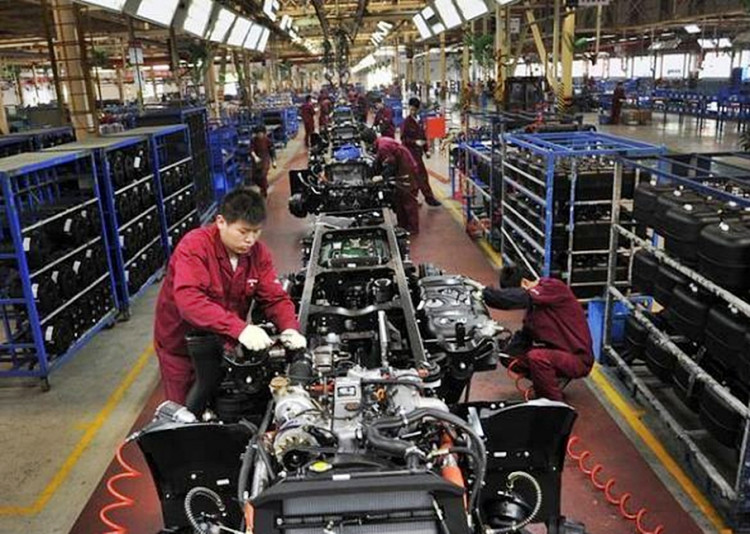Chinese firms are defaulting on their debts in record numbers even as a worsening economic slowdown tightens credit conditions even more.
China's corporate debt skyrocketed to a record high in 2018, according to new report from Singapore bank DBS. Yuan-denominated debt ballooned to an "unprecedented"$17.8 billion, which is four times higher than the total for 2017, said DBS.
In addition, defaults for Chinese corporate bonds issued in both U.S. dollars and the Chinese yuan or renminbi soared in 2018.
Japanese financial services group Nomura, however, said the size of China's defaults in onshore bonds (or yuan-denominated bonds) in 2018 was much higher at $23.8 billion compared to the DBS estimate. The Nomura amount is four times larger than its 2017 estimate.
Offshore corporate dollar bonds (or U.S. dollar-denominated debt issued by Chinese companies) also spiked. Nomura said the amount of offshore corporate dollar bonds debt jumped to $7 billion in 2018, from none the year before.
"China witnessed an unprecedented wave of corporate bond defaults last year, in a fresh sign of wobbles hitting financial markets as slowdown deepens," said DBS in the report.
DBS noted that China's energy sector accounted for most of the current defaults. The sector defaulted on $6.9 billion in 2018, an amount that constitutes up almost 40 percent of all defaults in yuan-denominated debt. Consumer companies were the next worst defaulters.
"The default wave is extending into 2019 ... Given the reduced risk appetite and huge maturing volume, the outlook is poor," said DBS.
This year promises more defaults given there are $523 billion (RMB3.5 trillion) in corporate bonds due this year alone. A continuation of the weakening of the global economy ensures Chinese firms will face tighter monetary conditions, made far worse by high borrowing costs and the government's deleveraging campaign.
DBS noted that real interest rates shot up to 4.35 percent in January from as low as -3.1 percent at the start of 2017.
"Availability of credit for refinancing remains tight despite repeated monetary easing by (the) PBOC (People's Bank of China)," said DBS. "Commercial banks have remained cautious in lending to private companies and financially wobbly state-owned enterprises."
These increasingly tough monetary conditions "add to the financial stress on Chinese firms." DBS said this wide range of challenges "doesn't bode well for their debt repayment ability."
China's property sector is set to see more defaults this year. The funding pressures faced by property developers have is being worsened by the housing slowdown, according to DBS.
The bank said that "a worryingly large share of recent borrowing has come in the form of short-term bonds."





